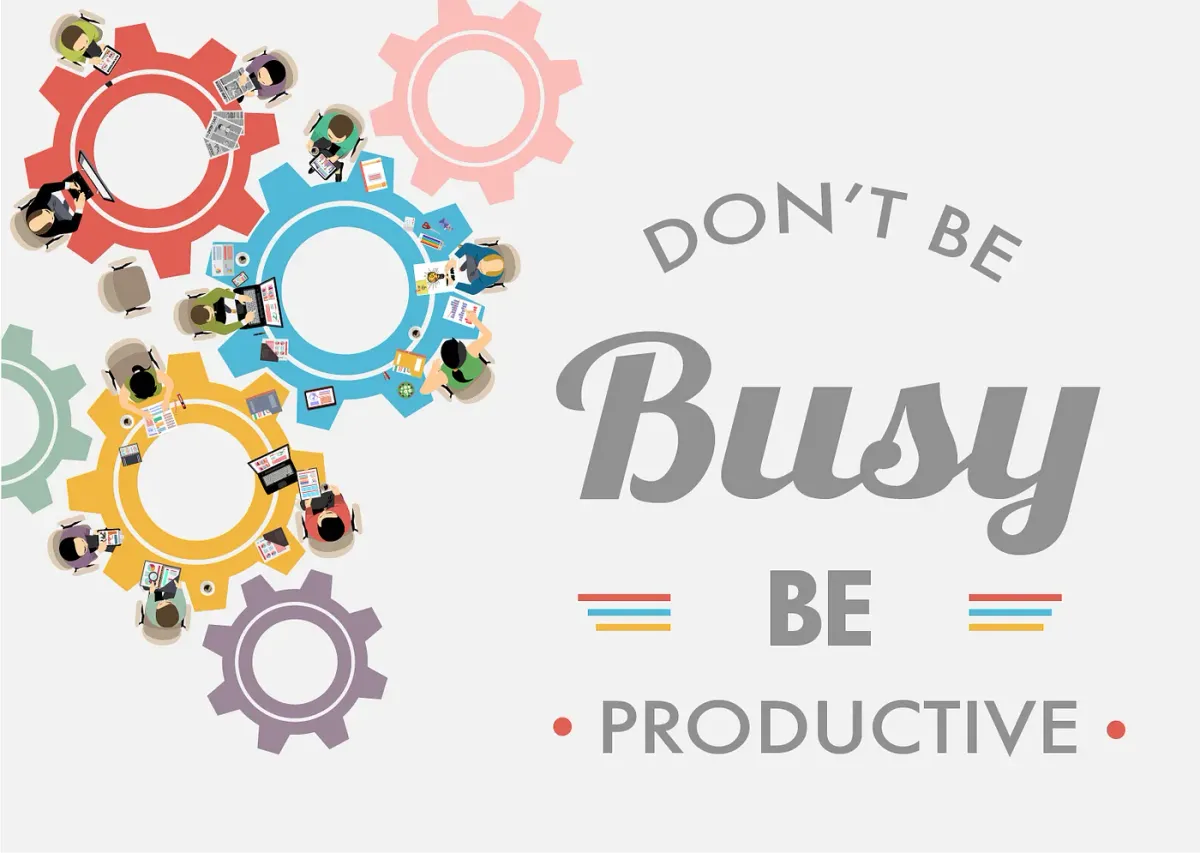The 7 Principles of Working Smarter

We’ve all heard the phrase “Work smarter, not harder”. But what does it actually mean? Does it mean that you don’t have to work hard in order to achieve the best results and advance in your career? Or it means that you need to pay attention to what things you focus on?
In the book “Great at Work: How Top Performers Do Less, Work Better and Achieve More”, author Morten T. Hansen, who has been ranked as one of the world’s most influential management thinkers by European Business Forum Thinkers 50, explains how he did a study about this topic.
The motivation behind the study was an epiphany he had when he realised that while he was putting in 70 to 90 hours per week trying to work as best as he could, his colleague who almost never worked late produced results that were clearly much better than his.
The study involved 5,000 people in the United States from different backgrounds (juniors, seniors, women, men and so on), including ratings from the bosses and self-reports. The study resulted in a conclusion that about 2/3 of the difference in performance among the 5,000 people can be explained by seven principles, which means that if you focus on these few things, you will have a significant boost in your performance.
1. Do less, then obsess

One of the most important factors in individual performance is the ability to focus. But just simply focusing on a specific task is not enough. If you don’t apply enough effort to a task you’re focusing on, you’re not doing it well. You need to obsess over it.
80/20 rule says that 20% of our priorities typically account for 80% of our results. So, the real challenge to prioritisation is saying “No!”. It’s easy to say yes. The real challenge is to say no to the “busy work” that gives you the satisfaction of checking an easy task off your to do list, but doesn’t contribute greatly to the end goal. And when you are able to clearly define what your main focus should be, you need to channel all your effort into excelling in that work, and really obsess about it.
Study results show that if you master this principle, your performance ranking among your peers will be boosted by 25 percentage points, so if you are currently in the top 30% performers in your company, applying this principle will place you in the top 5%, which makes a huge difference.
2. Pursue value instead of goals

The second principle says that if you obsess about the wrong things, you’re still not going to perform well. While this statement sounds fairly obvious, it’s surprising how often people focus on the wrong things.
Imagine this: You set a task for yourself, focus on it and get it done, get a feeling of fulfilment, only to find out that your customer is not satisfied with the end result. This inevitably leads to anger and frustration.
If you define an internal metric such as the number of hours you put in on a weekly basis, amount of code you commit daily, number of JIRA tickets you close per release, or time you waste on the social media, you might get the wrong idea about your contribution to the project, as your customer usually has a completely different idea about what’s important and what’s not.
The most important question you should ask yourself is: “What value can I bring to my job?” This will define your focus points, and the work you need to obsess over.
This does not mean that you should use this principle as an excuse to not work enough. Working 30 hours a week on a full-time job is simply not enough. No deep focus can save that. Some corporate companies will say that 40 hours is still too low. If you work about 50 hours a week, you’re not slacking off. In fact, you’re working pretty hard. So, the place you want to be most of the time is somewhere between 40 and 50 hours a week.
However, if you go beyond 50 hours a week, you don’t really get much extra value for your hours and if you put in more than 65, you’re actually getting negative results because your personal life and health take a serious hit.
Unfortunately, you don’t always have the freedom to set your own metrics, and someone else is setting the wrong ones for you, or even worse — they are setting too many. This is the point when you have to stand up to your boss, and do so without fear that you will be seen as a bad performer. If you accept more than you can handle, you’re just going to do a mediocre job on all of your tasks, and you will start to be considered as a poor performer.
Instead of downright rejecting work, you can always say that you can do it but not right now because you’ve got your hands full. If the other side insists, ask them to prioritise your workload and tell you which one you should do first. This puts the ball in the manager’s court, which is totally appropriate, as that is manager’s work after all. And this approach is much, much better than to accept the work and be passive aggressive about it, burn out and sabotage the work on purpose, just to say “I told you so” in the end, which is not productive at all.
3. Continuous Self-Improvement

How to continue to grow even when doing all the work you’re supposed to do? Use the “Learning Loop” technique. It works like this: You do something, get feedback on how you did it and then modify your behaviour. Many people are on autopilot: After they reach a certain level of competence they remain at a stall point.
No matter how much work you have, you can dedicate 15 minutes of your day to reflect and improve one particular skill that will make you grow. Breaking the desired skill into manageable chunks will allow you to keep doing it every day. Can you really hammer out significant progress by devoting just fifteen minutes a day? Yes, so long as you pick one and only one skill to develop at a time.
Need to work on your social skills? You could be better at reporting? Need to catch up with the latest technology? Dedicate 15 minutes to that today, and keep doing it every day until you’re satisfied. Don’t take up 5 or 10 things, just one very specific thing and try to improve at it a little every day.
4. Match your passion with purpose

Another famous saying is that we should follow our passion. But you’re not always passionate about work that’s meaningful. Or something you’re passionate about doesn’t give you any purpose. Many people who follow their dreams end up having a terrible career, so this advice can be very dangerous.
There is an important distinction between passion and purpose. Passion is doing what you love, what the world can give you. Purpose, on the other hand, is what you give the world. Matching passion with purpose enables you to wake up excited about your work, but also feel that what you do has meaning and contributes to a greater good. These people perform the best.
5. Be a forceful champion

In order to inspire others, you need to apply smart grit. You can only come so far with sheer force of will and perseverance. At one point, you will have to influence other people and use the skill of persuasion. Being good at your work is commendable, but problems often emerge not from the technical, but from the human side of the project. And then you need to handle people, which is usually much harder.
Show character. Remember that the emotional appeal may be as important, or even more important as the logical appeal. Make your team feel purpose by connecting daily work to a bigger picture. Evoke emotions in others. Confront opponents when needed. Consider the perspective of opponents and tailor your tactics to opponents’ tactics.
6. Fight and unite

You need meetings with healthy discussion and debate. If you have a meeting with a lousy debate, you may make lousy decisions about it. Niceness is not the key here — you do not want to be nice and accept everything that is said, as that will lead to terrible ideas and terrible decisions. If you have a group of people who are all too similar and think alike, then there’ll never be any new ideas.
You’re supposed to have a good fight in the meeting, to have a rigorous debate around the ideas. In the good way. You’re not attacking a person, but their ideas. Don’t take things personally. And once you get to a decision you need to be able to unite behind those decisions as a team. Often people whose ideas don’t get accepted get offended and undermine the idea after the meeting. But it’s not about the people, it’s about what’s best for the product, and finding a solution everyone will benefit from.
7. Collaboration is not always good

Because of the mantra that collaboration is always good and you should always do more of it, people often collaborate on too many things. They schedule meetings after meetings where they keep talking and talking, not really having time to sit down and do the work. No time to obsess. No time to excel where it really matters. Meetings should be for one thing only: to have a great discussion in order to reach better decisions. Often meetings are about status updates. This is wrong — you can do that on Slack or via email.
It should not be necessary to spend hours and hours on meetings, or invite people whose presence is not required at every meeting. Fear of missing out is a very common reason why people want to attend all the meetings, but in the end it can just become a big time-waster. What you should do is decide the most valuable collaborative activities and engage in those, and use the rest of your time to focus and do the actual work.



